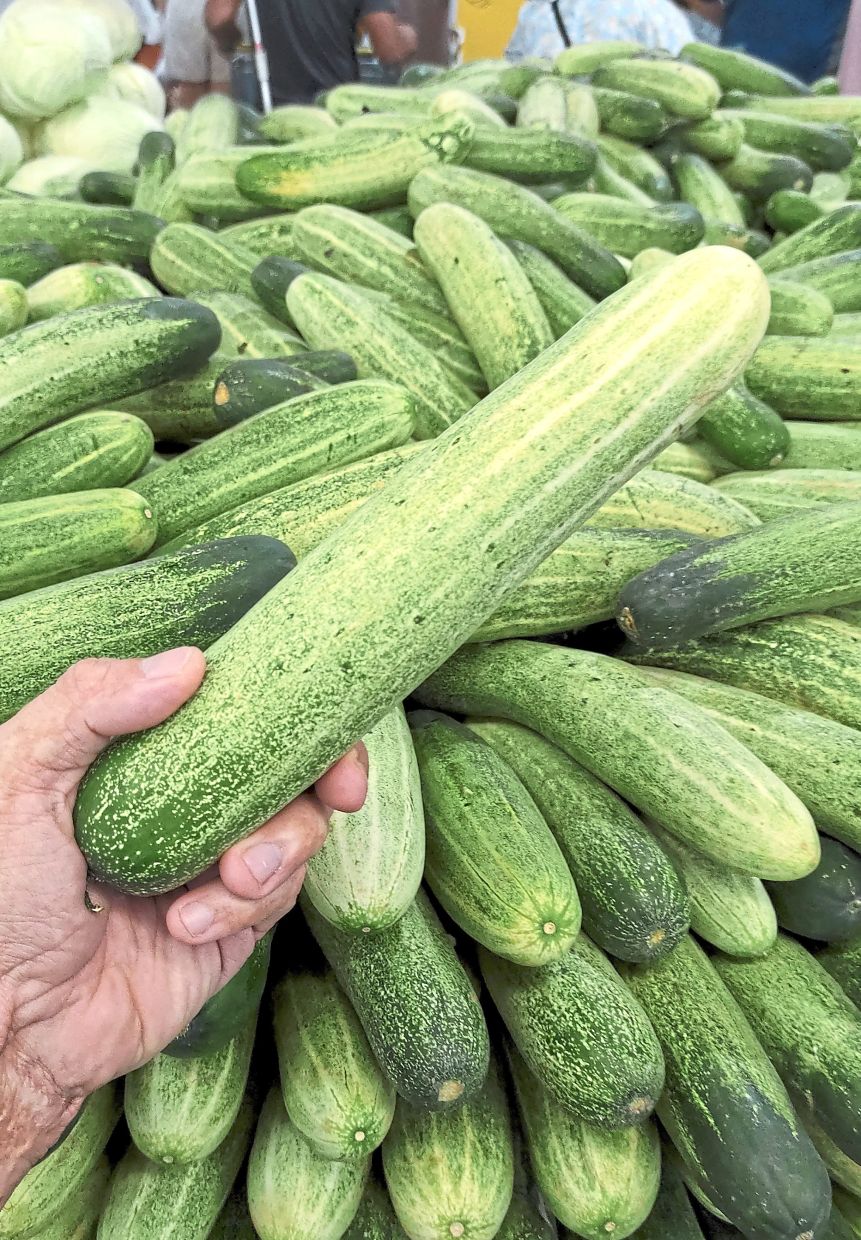MORE than merely eating to survive, some subscribe to the philosophy that they live to eat. Either way, our lives are deeply entwined with food.
Many English idioms or proverbs contain food in them, and while they inject some fun and colour into our daily conversations, they also carry a deeper meaning that is easily relatable.
Here, we list a few popular ones as well as some that are not so common.
1 As cool as a cucumber
This phrase was first seen in John Gay’s poems, New Song on New Similes in 1732. Since then, it’s become part of our daily English language. It refers to a person who is very calm and relaxed, even when you don’t expect him/her to be.
2 Like two peas in a pod
There’s no clear attribution of this idiom to a person; the earliest usage recorded was in the early 16th century. If you take a good look at peas, you’ll notice that they fit perfectly in the pod and all the peas look almost alike. The meaning of the idiom is clear – it describes two people who look very much alike, have the same character or like the same things.
3 The world is your oyster
Attributed to Shakespeare who used this line in his play, The Merry Wives of Windsor in 1602. Since then, it has become a popular saying to mean you can do anything or go anywhere you want, because you can.
4 Ride the gravy train
This saying was used by railway men in the 1920s in America to describe a good run, which involved good pay and little work. In other words, easy money coming in; gravy being a slang word for money. The band Pink Floyd used “ride the gravy train” in their song Have a cigar, talking about record executives getting a free ride with the easy money obtained from the band’s hit songs.
5 Drop it like a hot potato
The term dates back to the 1800s and refers to dropping someone or something super quickly. If you’ve ever handled a hot potato, you’ll surely understand this.
6 No use crying over spilt milk
Apparently this phrase goes as far back as 1659 when British historian and writer James Howell used it in his work, Paramoigraphy. It means there’s no use being upset or worrying about a situation as nothing can be done about it.
7 When life gives you lemons, make lemonade
Story goes that the phrase was coined in 1915 by Christian anarchist writer Elbert Hubbard for an obituary for dwarf actor Marshall Pinckney Wilder. Basically it means one should make the best of a bad situation. One may have been dealt a bad hand in life, but by being optimistic and thinking positively, it is possible to change things around.
8 The best thing since sliced bread
This has its origins in the United States in the 1920s after the automatic bread slicer was invented. Bread was an important staple then, and having it readily sliced was seen as a wonderful innovation as it was so convenient. The idiom is used to describe something very good or innovative; an exaggeration, perhaps even slight sarcasm, to suggest that it’s the best thing invented.
9 You can’t make an omelette without breaking eggs
Originally an 18th century French phrase by Royalist counter-revolutionary François de Charette, it has been translated into English. According to the Cambridge dictionary, this means that it is hard to achieve something important without causing some after-effects.
10 Use your loaf
Used in Britain, based on the Cockney rhyming slang for head which is “loaf of bread”. In other words, use your brains and think about what you’re doing.
11 A few fries short of a Happy Meal
A relatively new idiom coined in the new millennium, a Happy Meal is a kid’s meal set at a fast-food chain which includes fries and a burger. Without fries, it’s not a complete package. In other words, it infers that someone is not very smart.
12 You catch more flies with honey than with vinegar
The origin of this proverb is not altogether clear. Apparently, a similar phrase exists in Italian that was first seen in print in 1666. It means that you can go further or achieve what you want by gentle persuasion and kindness rather than being mean, demanding or aggressive.











